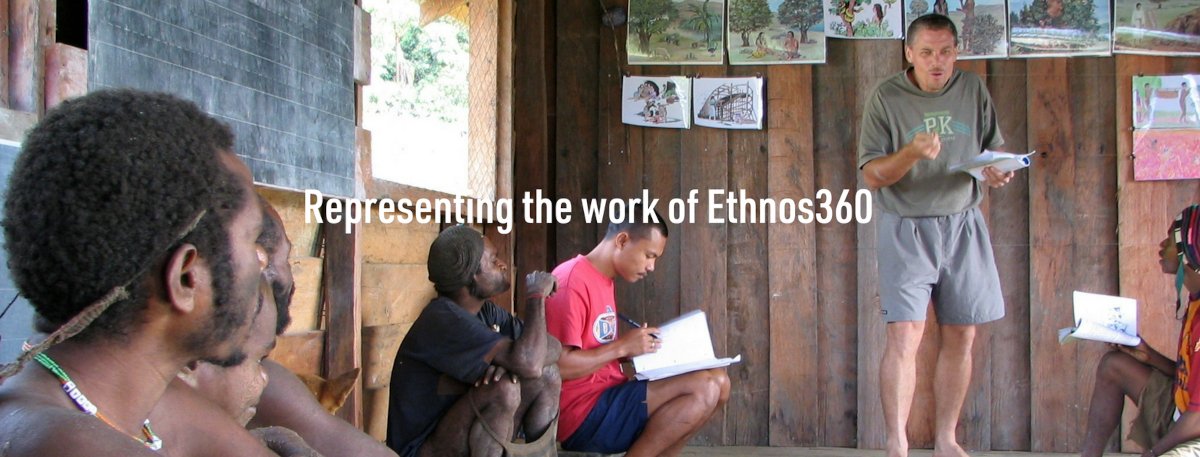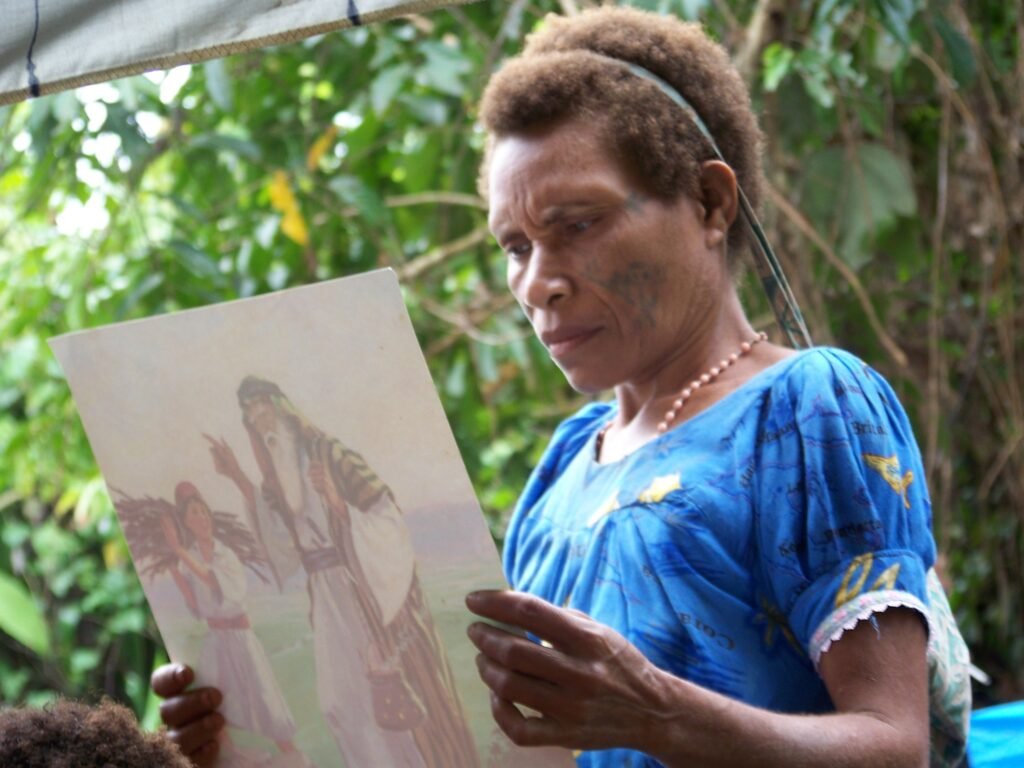
Discipleship and Global Outreach
- What stirs people to be global workers – missionaries?
- Opportunities for faith
- The necessity of global workers
- Faith that leads to global workers
- The activity of believing God’s word
- Intentionally preparing and sending global workers
- Preparing the local church for global ministry
- Teaching disciples about global ministry
- Resources for discipleship toward global ministry
Discipleship and Global Outreach
We need people.
The greatest need in missions is people who, by faith in God’s word, are prepared and able to do the work of the ministry. Just like ministry at home, church planting requires a team with a variety of skills and gifts. Some do the teaching and some care for physical needs so that people can hear the teaching. Sometimes everyone does both.
Missionaries are messengers. They come from local churches that evangelize, establish, train, equip, and send people from a position of knowing God, His purpose in the world, and our role as His ambassadors.
Ethnos360 missionaries work as a team in a variety of different roles, using individual skills and gifts to accomplish with urgency and carefulness the ultimate objective: establish thriving churches of Christ-followers where people have had no access to God’s word.
At the core of global missions outreach is discipleship in the local church.
The root of missions is in knowing, believing, and obeying God. Loving God, loving people, telling everyone, and teaching people to obey Christ is at the start and finish of world outreach. More missionaries requires more discipleship.
The means of missions is people who believe God enough to take action; giving themselves and their possessions in obedience where they are to proclaim His glory where Christ is not known.
What stirs people to be global workers - missionaries?
Flying over the broccoli green canopy of jungle in Papua New Guinea, I saw scattered clusters of grass roofs, indicating villages of people. Most villages represented completely different language groups. Each was a reminder to pray for laborers.
The island over which I was flying was about 1500 miles long, and was home to nearly as many unique language groups of people. Despite indications in popular books and websites, about half of these language groups still have no Gospel witness. Many have been “missionized” in that they can sing songs recognizable in many western churches but no understanding of the identity and work of Jesus. They have no one to tell them in a language they understand.
I landed the aircraft at a remote jungle village where missionaries were working to establish thriving churches. As I unloaded the aircraft, a tribesman approached me. He handed me some envelopes stained with dirt. They were marked with the name of our regional leader.
Upon returning to the city, I asked the leader what was in the envelopes. He told me they were requests for missionaries from language groups of people unreached with the Gospel. He had a stack of letters. I asked for some copies.
We were working hard to reach people with the Gospel. That was the whole point of our being there. We wanted to establish thriving churches of Christ-followers who would proclaim God’s glory in the regions beyond them and continue long after the missionaries were gone.
We hope that the churches that have already been planted will someday be able to carry what they have heard into other language groups. Key obstacles for them are training to learn an unwritten language to a high level of fluency and access to eduction that would enable them to record an unwritten language, create and alphabet, teach literacy, and translate the Bible so that they have something to teach. God’s word is what believers are to deliver, so, until the local churches are capable of the task, missionaries are necessary for each of these unreached people groups.
So, what can we tell people who are asking for missionaries? We will send missionaries as soon as we find someone to send.
On my next home assignment I took a stack of those letters and displayed them in churches across the USA. I told people about similar requests from about one hundred different language groups of people. As far as I know, no one volunteered to be a missionary because of those letters.
What moves people to be career missionaries is discipleship. Through knowledge of the character and purpose of God, people respond in faith and obedience. Only personally applying what God has written can move and sustain people in career missionary efforts. The foundation of missions is teaching people to know, trust and obey God through intentional discipleship.

Opportunities for faith
Many unreached ethnolinguistic people groups who have asked for a missionary still do not have one. The solution requires dedicated personnel of over a sustained effort of ten to twenty years.
God’s written word does not exist in the language of the people who asked to be taught. What God has said is what we have to offer them.
To teach God’s word in the language they understand, qualified persons would have to learn an unwritten language to a high level of fluency to translate the scriptures. Someone would have to read God’s word, apply His values to their own lives, and respond by faith to tell remote people His message. Do you know a “someone” who is willing and able to be trained to do this?
Faith comes by hearing the word of God which is carried by messengers who are sent. (Romans 10:13-17) God uses human instruments to deliver truth. Just as in time past some disciples of Jesus did this for us, someone is needed to make the written word of God accessible to them.
When a previously unreached group of people first understand the Gospel clearly, they often have two questions:
- How long have your people held this message of eternal life?
- What took you so long to bring this message to us?
The same written word of God that transforms lives is what moves people into ministry to proclaim His glory where Christ is not known.
The necessity of global workers
On the highest authority in heaven and on earth Jesus told His disciples to go to every ethnic group, preaching, baptizing and teaching them to observe/obey all things that he commanded. Matthew 28:18-20 (Mark 16:15, Luke 24:46-48, Acts 1:8, Romans 10:13-17, 2 Corinthians 4 & 5)
Teaching people to observe or obey all that Christ commanded takes time. It requires a high understanding of the local language and culture to accurately communicate God’s message. It requires having God’s written word in hand to teach. It takes time living life together. It involves faithfulness and intention.
Would there be thousands of ethnolinguistic people groups who have no access to the gospel if Matthew 28:18-20 were the objective of every professed disciple of Jesus?
The greatest need in global outreach is people; laborers who are willing to do the work of bringing in the harvest. We need people who will take the commands of the Great Commission and apply them personally.
Where do global workers come from?
Faith that leads to global workers
Global workers come from local churches who have evangelized them, established them in Christ, equipped them for ministry, taught them to lead, and sent them to the ends of the earth to teach people to observe all that Christ commanded.
Jesus summed up all of the Old Testament with two commandments.
“Master, which is the great commandment in the law? Jesus said unto him, Thou shalt love the Lord thy God with all thy heart, and with all thy soul, and with all thy mind. This is the first and great commandment. And the second is like unto it, Thou shalt love thy neighbour as thyself. On these two commandments hang all the law and the prophets.” Matthew 22:36-40
How could we love God with all of our heart, soul, mind, and strength without knowing His character and purpose in the world?
How could we love Him in this way without valuing what He values?
How could we love our neighbors as ourselves without telling them about our triune God who is our greatest treasure?
The activity of believing God's word
Jesus repeatedly reprimanded people for not knowing and believing what was written in the Old Testament. He expected people to know what was already written and to believe Him.
(Mark 7:18, 8:17-19, 21, Mark 16:14, 17:17, Luke 24:25, 27, 44, Matthew 12:3, 5, 15;16, 16:11, 26:54, John 3;10, John 16:12, Acts 28:27, Romans 1:17-18, 1 Corinthians 3;2, Ephesians 4:14, Hebrews 5:11-14)
Even after His resurrection, during His walk with two of His disciples on the road to Emmaus, Jesus focused their attention on what had already been written. (Luke 24:25-27, 44-48, Acts 1:3)
What does it look like teaching people to obey all that Christ commanded?
The apostles and their disciples wrote what they learned and presented it to us in the four Gospels; teaching the identity, character, works and purpose of Jesus.
In 2 Timothy 2:2 teaching involves committing what has been learned to faithful men who will teach others also. In Ephesians 4:12 it is equipping the saints for the work of the ministry. In 1 Timothy 3 and Titus 1 it is recognizing qualified people to lead the church as elders and deacons. In 1 Corinthians 3 it is building with gold, silver, and precious stone as opposed to wood, hay, and stubble. In Acts 1:8 it is, “…ye shall be witnesses unto me…” In 2 Peter 1:5ff it is adding our faith virtue, knowledge, temperance, patience, godliness, brotherly kindness, and charity.
All of these writings take us back into what was already written in the Old Testament to learn about God’s character and purpose.
Intentionally preparing and sending global workers
Where do people come from who are qualified to teach and ordain Biblically qualified leaders?
They come from local churches – gatherings of Christ-followers who diligently teach and equip them for ministry. Even parachurch organizations, that assist local churches with accelerated Bible education and ministry training for their people, are rooted in the Body in that the members and educators are connected in and supported by local churches.
Churches that have a global vision operate as a body, teaching God’s purpose in the world, opening doors of opportunities, assisting the members with engaging in community, equipping workers for ministry, and intentionally sending messengers to places where Christ is not known – to teach people to observe all that Christ commanded.
Often the Biblical plan and purpose becomes lost in local ministry – to where the global vision is delegated to a few people in a department of the local congregation.
The antidote to declining global ministry is to lay again the foundations of God’s character, His purpose in the world, and His plan for people to represent Him as ambassadors and His image-bearers in all of the world.
Having people who can be sent to teach all that Christ commanded requires a team of people who will disciple global workers for that purpose. If there is a time when we “ought to be teachers” (Hebrews 5:12), then what are we doing in the local church to prepare people to be teachers? If there is a path for new believers toward fruitful maturity (2 Peter 1:3-11), then what are we doing locally to move willing people along that path to where they can be effective ministers, teachers and recognized leaders in the Church?
If we want to have a part in sending laborers to assist with bringing in the harvest, especially where Christ is not known, then while we pray for laborers we need to be about the business of intentionally equipping the saints for the work of the ministry. (Ephesians 4:12) Discipleship is about helping people to know and follow Jesus so that they can join Him in His work. (John 15:5)



Preparing the local church for global ministry
Do people in our local congregations know…
- there are Biblical objectives toward growth, spiritual maturity, and leadership in the local church?
- there are available to them within the local congregation existing intentional paths so that each willing member of the Body can be led and equipped toward spiritual growth, maturity, and fruitfulness?
- who to see and where to go to engage in an intentional path toward growth and equipping?
- our purpose as a local body of the universal Church in working together to accomplish the commands of Christ, our Head?
Ethnos360 teams have been establishing churches in remote contexts around the world since 1942. Over the decades, some ministries have been done well, and other ministries have required going back to the beginning. By God’s grace, as an organization, we have learned some Biblical principles about laying foundations to establish thriving churches. One of those key principles involves foundational Bible teaching, beginning in Genesis, which focuses much attention on how God reveals His character, purpose, and plan in the world. After all, He alone is the hero of His book, The Holy Bible. His glory He will not share with another. (Isaiah 42:8)
In teaching people who have no knowledge at all of the God of the Bible, it is essential to lay spiritual foundations carefully before building on them. (1 Corinthians 3:10-15)
If those Biblical principles of laying foundations for Biblical faith apply in the remote places of the world, do they not also apply here?
Preparing people for global ministry involves teaching people the character and nature of God. Discipleship. Preparing people to share the love of Christ with people at the ends of the earth involves teaching people about God’s person, purpose, plan, people, and processes.*
Teaching disciples about global ministry
If they don’t know, they can’t go.
If people do not know what God is doing in the world, how could they engage in His work?
If people to do not know there are people who have no access to the Good News about Jesus, how can they act by faith to go tell them?
Intentionally teaching and equipping people within the congregation to serve as senders and serve as sent messengers is a key function of the local church. This can be accomplished completely under the leadership of the local church. I have posted some highly useful resources for this purpose below.
While praying for laborers to be sent into the harvest, we can be working through intentional discipleship to prepare global workers to be sent and to prepare people to send them.



Resources for discipleship toward global ministry
Motivation: I have laid out five keys to global outreach. We need to know what God is doing, what our roles are as individuals, the vision of what needs to be accomplished, how to go about completing the work, and how to empower believers of every age to engage in what God is doing. See stilluntold.org/keys
At the very core is knowing God’s person, purpose, plan, people, and processes. See stilluntold.com/basis
These videos show intentional discipleship in church planting among ethnolinguistic people groups who were among the least reached with the Gospel.
— Moi: Hearing His Voice – youtu.be/n_IrNo8mEzY
— Yembiyembi: Unto the Nations
— Wano: endsoftheearthmovie.com
— Maleu: His Gift to Gie
— Mouk: Ee-Taow, The Mouk Story
These are some great resources for discipleship and equipping people for global ministry from home and overseas.
- Rock Solid Kids by Jill Goring – rocksolidkids.org
- Interlocked – interlocked.online
- Establish – Establishseries.com
- Tetelestai – tetelestai.io
- King of Glory by Rock International – youtu.be/1Cdr4DMH7c8
- “Firm Foundations” & “Building on Firm Foundations” – ntmbooks.com
- Anchored International – anchoredinternational.com/resorces/